Planning school trips is an exciting adventure for both students and parents, but securing parental consent is a crucial step in ensuring a smooth experience. This letter template simplifies the process, helping parents easily understand the trip details and provide their permission. By clearly outlining the itinerary, safety measures, and any necessary costs, it allows parents to feel informed and reassured. Ready to dive deeper into crafting the perfect parental consent letter? Keep reading!
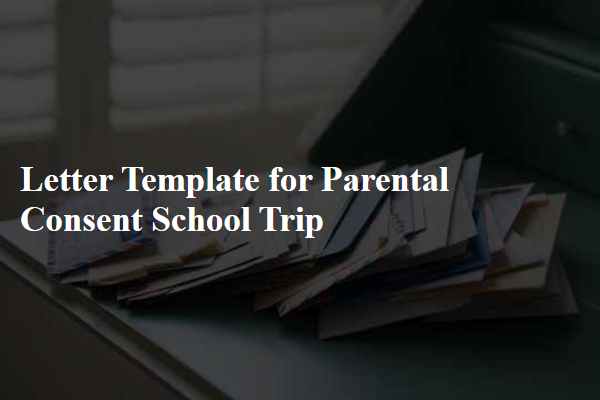
Child's Personal Information
Parental consent forms for school trips play a crucial role in ensuring students' safety and compliance with regulations. Key details include the child's name (essential for identification), date of birth (critical for age-related considerations), class or grade level (pertinent for organizing appropriate group activities), emergency contact information (vital for any unexpected incidents), health considerations (specific allergies or medical conditions should be noted), and parental signatures (legally binding acknowledgment of responsibility). The venue, such as a historical site or nature reserve, along with the trip date (often scheduled to align with school terms), is equally important for logistical reasons. Notably, information regarding transportation arrangements (school bus, public transit) and supervision protocols (teacher-to-student ratios) ensures thorough planning for the outing.
Trip Details and Itinerary
The upcoming school trip to the historic city of Philadelphia, scheduled for March 15, 2024, presents students with an enriching educational experience. The itinerary includes visits to significant landmarks such as the Liberty Bell, Independence Hall, and the Philadelphia Museum of Art, where students will engage in guided learning sessions. Departure from the school is set for 8:00 AM, utilizing a chartered bus equipped with safety features and seat belts. Planned return time is approximately 5:00 PM. A lunch break is scheduled at Franklin Square, known for its family-friendly atmosphere and green spaces, where students can enjoy a picnic-style meal. The total cost for the trip, including transportation and admission fees, is $50 per student. All participants are required to bring a signed parental consent form by March 1, 2024, to ensure their participation in this educational adventure.
Emergency Contact Information
Emergency contact information is essential for school trips to ensure prompt communication during unforeseen events. Parents should provide multiple contacts, including a primary contact person, preferably a guardian or parent, along with their mobile phone numbers (preferably including area codes) for easy reach. Secondary contacts can include relatives or close family friends who can step in if the primary contact is unavailable. Essential medical information such as allergies (e.g., peanuts, shellfish) and pre-existing conditions (like asthma or diabetes) should be documented clearly. Furthermore, include the child's full name, grade, and the name of the school, providing context for emergency responders. Additionally, a backup plan, including local health facilities or hospitals near the trip destination, should be noted to facilitate swift action when needed.
Medical Information and Allergies
Medical information is essential for ensuring the safety of students during school trips. Parents or guardians must provide comprehensive details about their child's health, including medical conditions like asthma, diabetes, or epilepsy. Allergies should be specifically noted, identifying triggers such as peanuts, tree nuts, shellfish, dairy, or gluten. Emergency contacts must be listed, ensuring prompt communication in case of health incidents. Additionally, necessary medications, along with administration instructions, must be clarified to school staff to prevent any complications. This proactive approach minimizes health risks and fosters a safe environment during school excursions.
Signature and Date
Parental consent is crucial for school trips, ensuring students' safety during activities outside the classroom. Consent forms typically require a signature from a guardian, confirming permission for their child's participation in educational excursions, often including details such as the date of the event, destination (like the local science museum or a historical battlefield), and specific activities planned. Parents may also need to provide emergency contact information, outline any medical concerns (such as allergies), and acknowledge understanding of potential risks associated with the trip. Proper completion of this document is vital for legal protection of both students and schools.
Letter Template For Parental Consent School Trip Samples
Letter template of parental consent for school field trip participation.
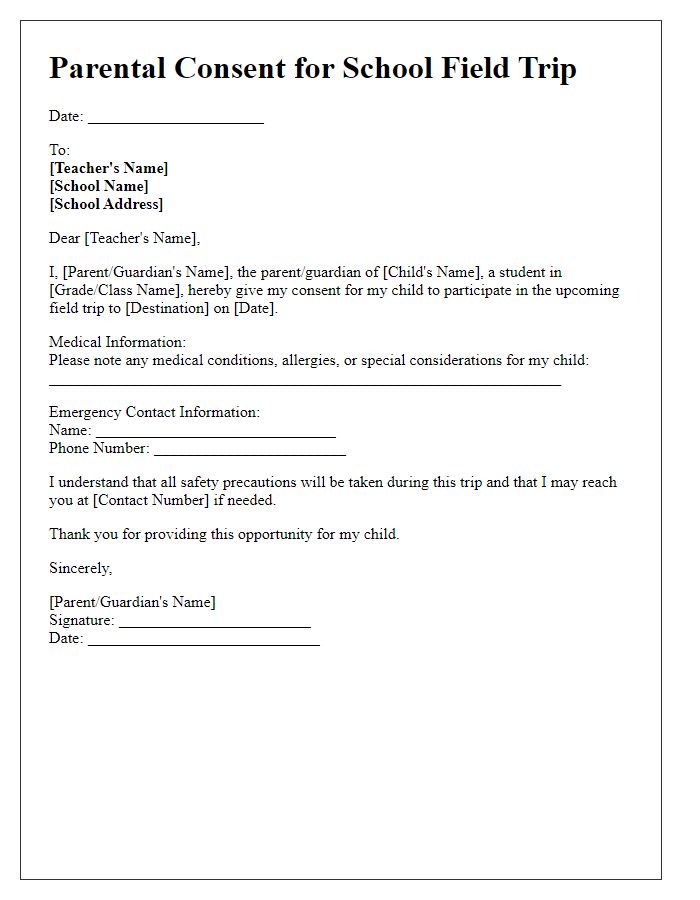

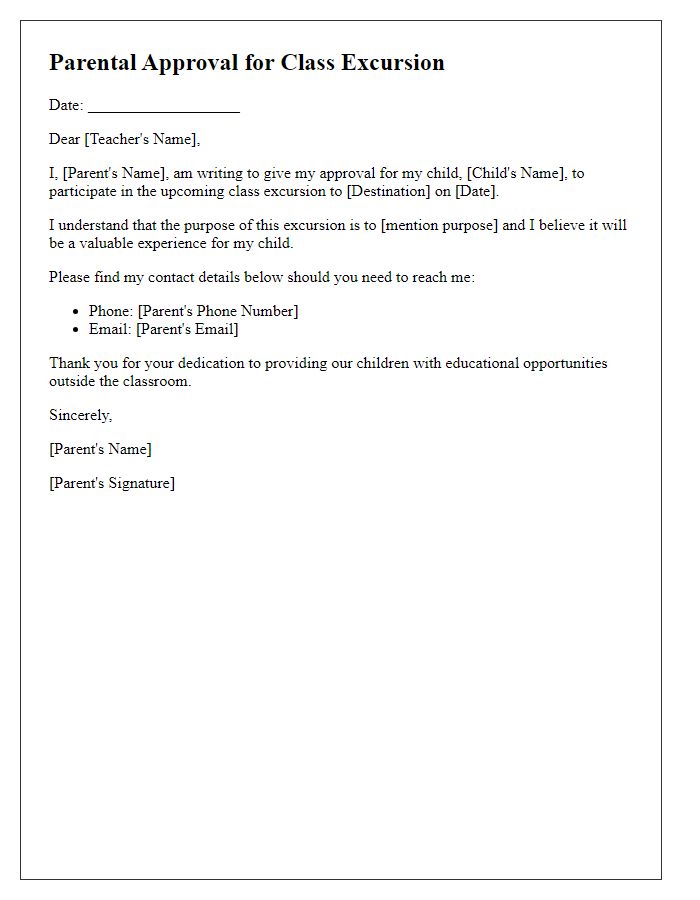
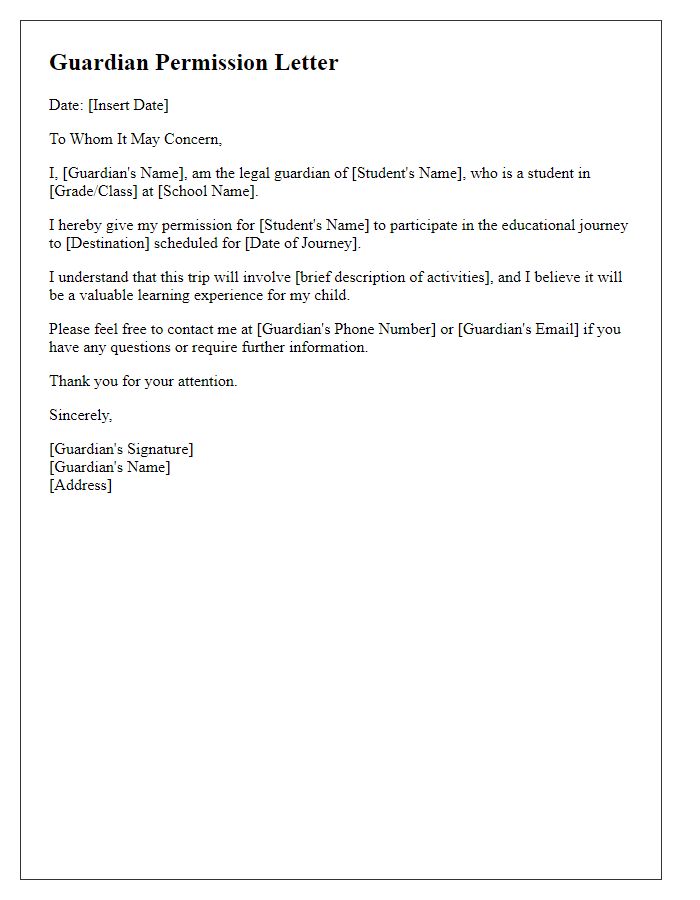
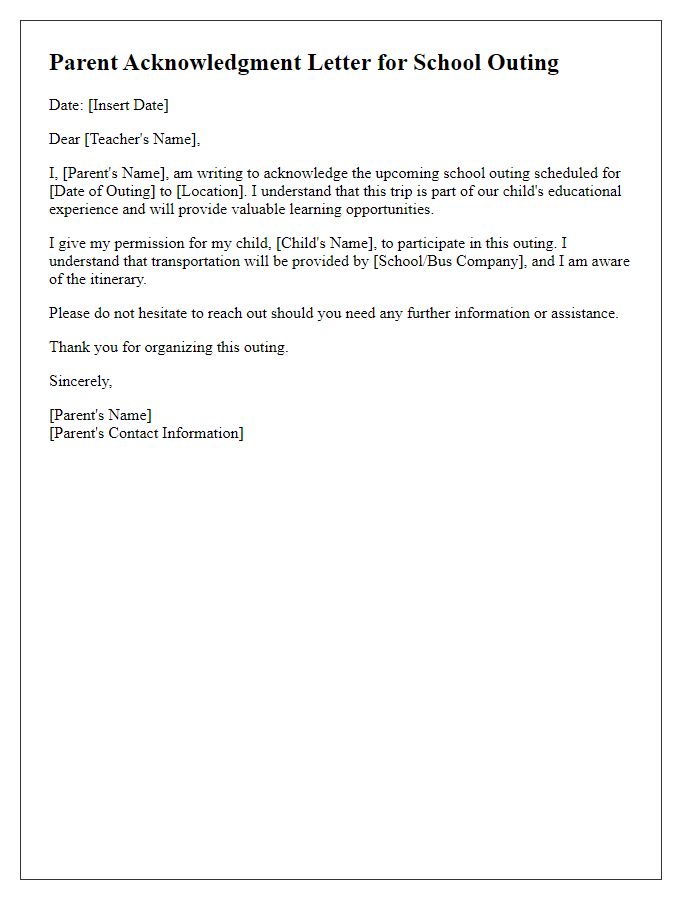
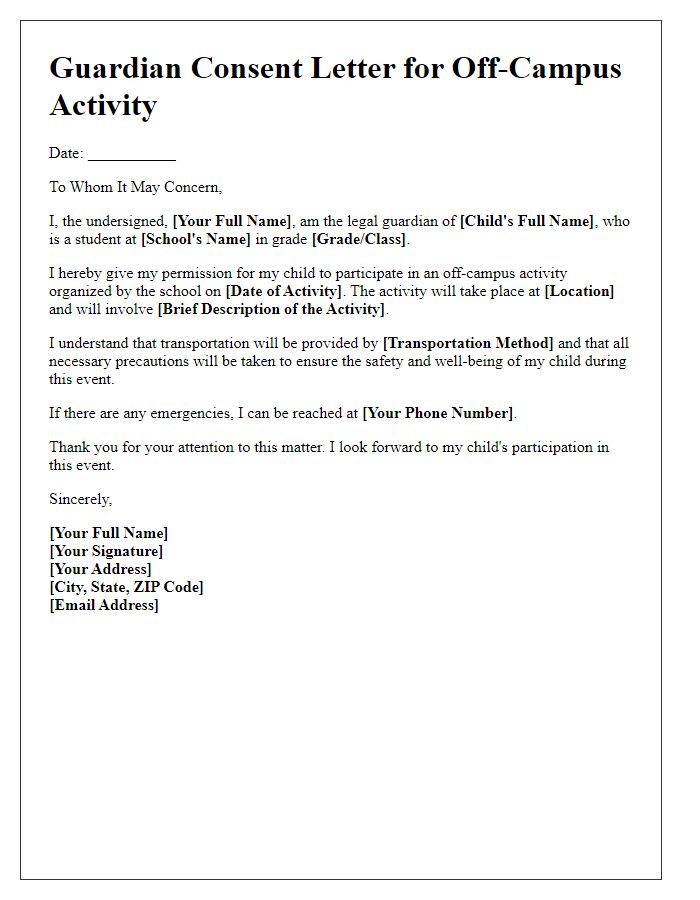
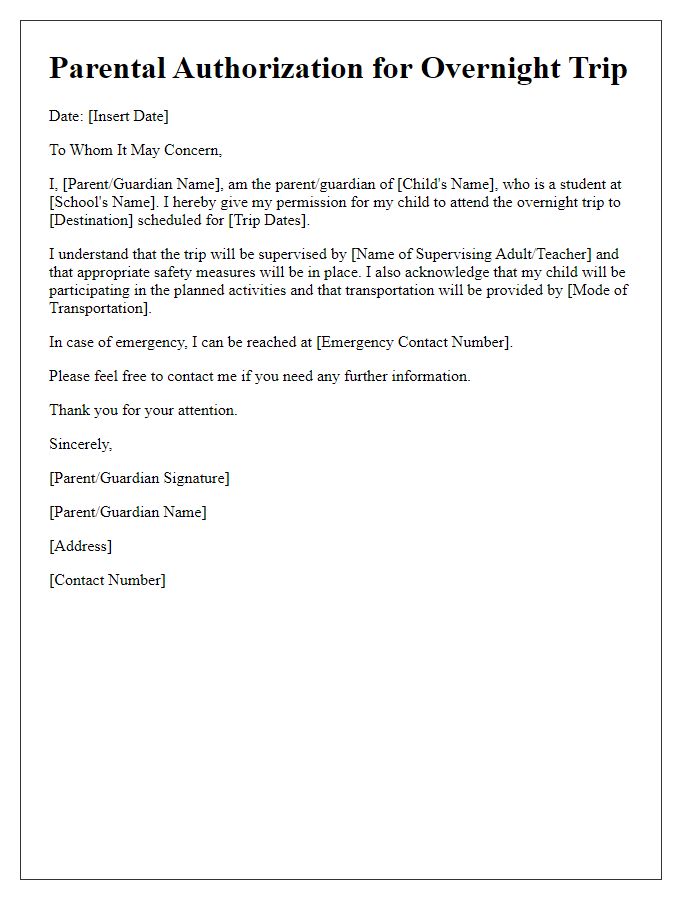
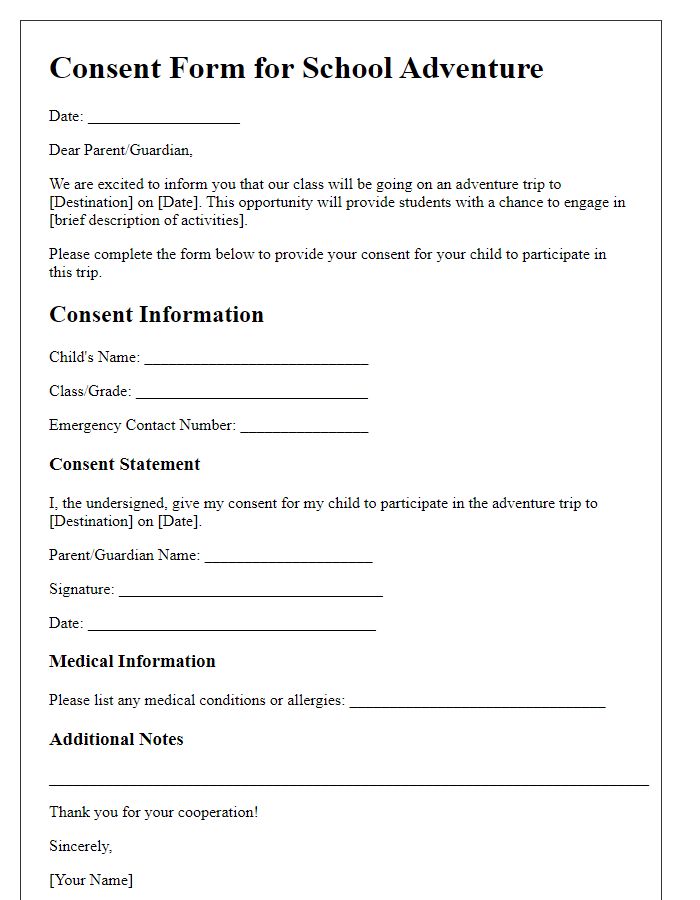
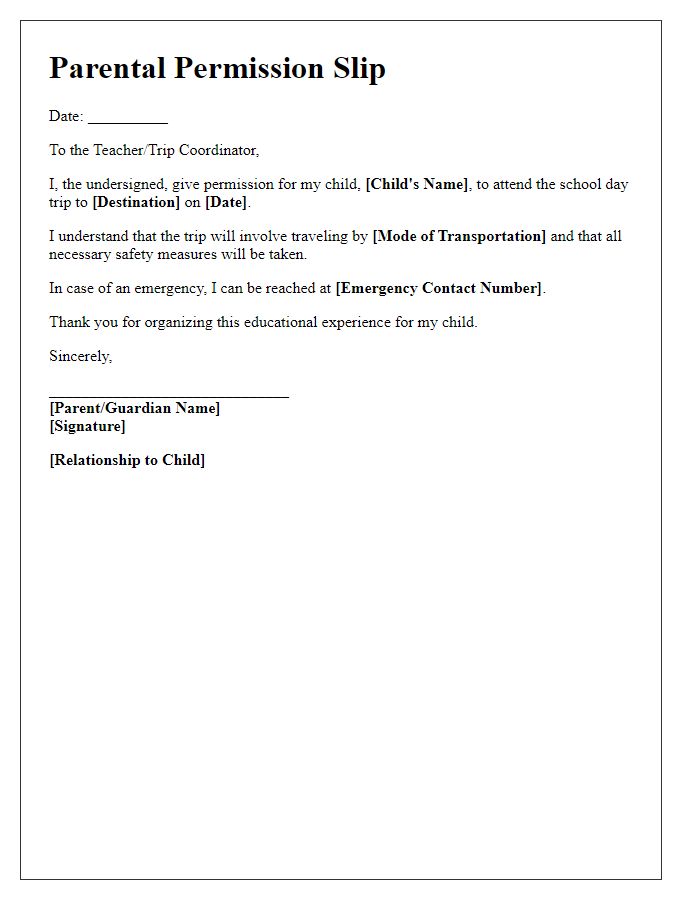
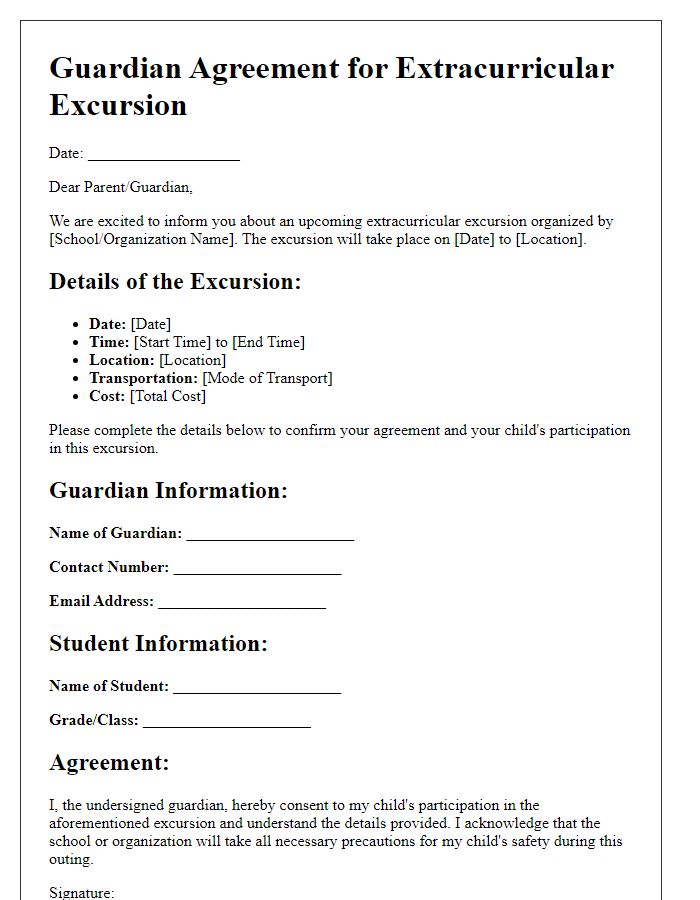
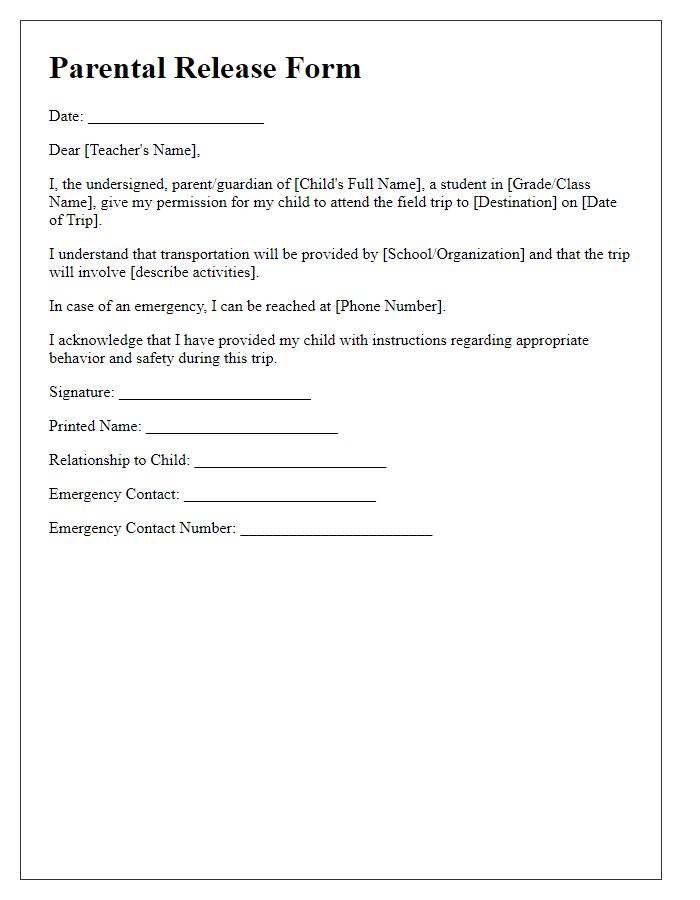


Comments